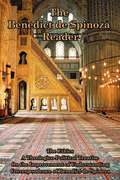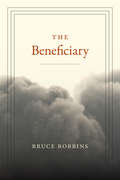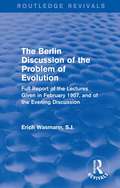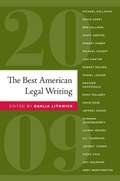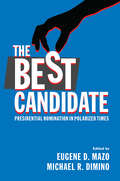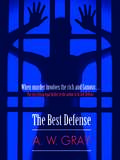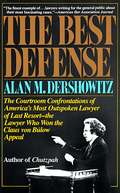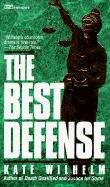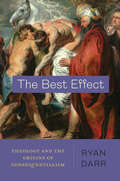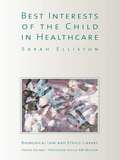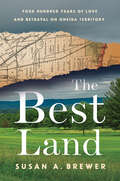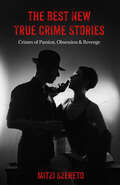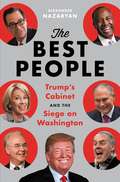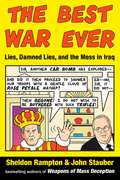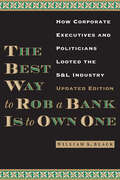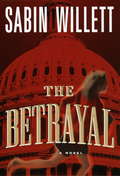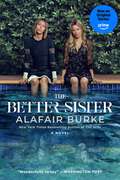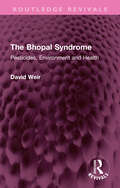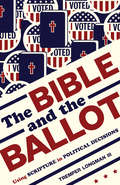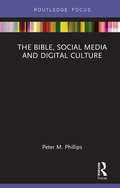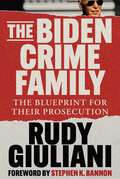- Table View
- List View
The Benedict de Spinoza Reader
by Benedict De SpinozaBenedict de Spinoza's writings laid the groundwork for the 18th century Enlightenment and for modern Biblical criticism. By virtue of his magnum opus, the Ethics, Spinoza is considered one of Western philosophy's definitive ethicists. Men would never be superstitious, if they could govern all their circumstances by set rules, or if they were always favoured by fortune: but being frequently driven into straits where rules are useless, and being often kept fluctuating pitiably between hope and fear by the uncertainty of fortune's greedily coveted favours, they are consequently, for the most part, very prone to credulity. The human mind is readily swayed this way or that in times of doubt, especially when hope and fear are struggling for the mastery, though usually it is boastful, over-confident, and vain. After experience had taught me that all the usual surroundings of social life are vain and futile; seeing that none of the objects of my fears contained in themselves anything either good or bad, except in so far as the mind is affected by them, I finally resolved to inquire whether there might be some real good having power to communicate itself, which would affect the mind singly, to the exclusion of all else: whether, in fact, there might be anything of which the discovery and attainment would enable me to enjoy continuous, supreme, and unending happiness. Spinoza was one of the great rationalists of 17th century philosophy. He helped lay the groundwork for the 18th century Enlightenment and modern biblical criticism. His correspondence helps shed light on his ethical opinions and positions. Required reading for those who wish a deeper understanding of the writings of Benedict de Spinoza.
The Beneficiary
by Bruce RobbinsFrom iPhones and clothing to jewelry and food, the products those of us in the developed world consume and enjoy exist only through the labor and suffering of countless others. In his new book Bruce Robbins examines the implications of this dynamic for humanitarianism and social justice. He locates the figure of the "beneficiary" in the history of humanitarian thought, which asks the prosperous to help the poor without requiring them to recognize their causal role in the creation of the abhorrent conditions they seek to remedy. Tracing how the beneficiary has manifested itself in the work of George Orwell, Virginia Woolf, Jamaica Kincaid, Naomi Klein, and others, Robbins uncovers a hidden tradition of economic cosmopolitanism. There are no easy answers to the question of how to confront systematic inequality on a global scale. But the first step, Robbins suggests, is to acknowledge that we are, in fact, beneficiaries.
The Berlin Discussion of the Problem of Evolution: Full Report of the Lectures Given in February 1907, and of the Evening Discussion
by Erich Wasmann, S.J.First published in 1909, this book collects the author’s lectures on the ‘problem of evolution’ and the resultant debate. The first considers the validity of the Theory of Evolution and whether it is in opposition to the Christian view of creation. The second examines the assertion that evolution harmonises only with Monism rather than Theism and which of the two views is preferable. It also looks at the popular identification of Darwinism with evolution, if it is scientific and the results this leads to. The third looks at man’s position in the problem of evolution — whether we are bound to bring in considerations higher than the zoological — and the evidence for our descent from ‘brutes’.
The Best American Legal Writing 2009
by Dahlia LithwickThe Best American Legal American Writing 2009 introduces readers to the most informative and incisive writing on the subject of legal theory and practice published during the past year.
The Best Candidate: Presidential Nomination in Polarized Times
by Eugene D. Mazo Michael R. DiminoThe way American citizens elect a president in November is enshrined in the Constitution and has remained unchanged for two hundred years. By contrast, the rules by which American political parties nominate their presidential candidates have evolved dramatically over time. In recent years, these byzantine rules have allowed a number of unexpected candidates to win their party's presidential nomination. In The Best Candidate, a roster of leading election law scholars from across the political spectrum - true-blue Democrats, die-hard Republicans, and everyone in between - illuminate the law behind the modern presidential nomination process and offer ideas for how it can be improved. This book offers a blueprint for how American voters and their parties could nominate the best candidate for the presidency, and it should be read by anyone who cares about the occupant of the Oval Office.
The Best Defense
by Rebecca Mitchell A. W. GrayAt a gala event in downtown Dallas, lawyer Sharon Hays runs into an old friend turned Hollywood star who is in town promoting her most recent film with her current lover--a Hollywood bad boy. But when a brutally murdered corpse is discovered in her posh hotel suite, the starlet finds herself accused of the crime. Sharon is all too eager to take up her friend's defense, but the facts of what happened that night in the hotel room are far from clear. Sharon's friend claims she never went back to the room, and her lover had supposedly blacked out. Soon Sharon finds herself in the media spotlight defending America's sweetheart.
The Best Defense
by Alan M. DershowitzThe author presents his most famous, and infamous, cases and clients, and in the process, takes a critical, informed look at a legal system that he regards as deeply corrupt.From the Trade Paperback edition.
The Best Defense
by Kate WilhelmAttorney Barbara Holloway has given up on her father's dream for her to become a successful lawyer. The deaths of both Barbara's mother and her lover have deeply affected her, and now she lives on the tiny salary she makes helping the poor who can't pay for "real" legal services. When Lucille Reiner first asks Barbara to help her sister, Barbara has no idea that Lucille's sister is Paula Kemmerman, dubbed the "Baby Killer" by the press after her six-year-old daughter was burned to death, allegedly by a temporarily deranged Paula. The more Barbara investigates, the more certain she becomes that Paula is the innocent victim both of a right-wing fundamentalist with an ax to grind and of a legal system that has turned its back on an innocent woman.
The Best Democracy Money Can Buy
by Greg PalastA disturbing book about manipulation by the rich of the have-nots.
The Best Effect: Theology and the Origins of Consequentialism
by Ryan DarrA theological history of consequentialism and a fresh agenda for teleological ethics. Consequentialism—the notion that we can judge an action by its effects alone—has been among the most influential approaches to ethics and public policy in the Anglophone world for more than two centuries. In The Best Effect, Ryan Darr argues that consequentialist ethics is not as secular or as rational as it is often assumed to be. Instead, Darr describes the emergence of consequentialism in the seventeenth century as a theological and cosmological vision and traces its intellectual development and eventual secularization across several centuries. The Best Effect reveals how contemporary consequentialism continues to bear traces of its history and proposes in its place a more expansive vision for teleological ethics.
The Best Interests of the Child in Healthcare (Biomedical Law and Ethics Library)
by Sarah EllistonTopical and compelling, this volume provides an excellent re-evaluation of the ‘best interests’ test in the healthcare arena; the ways in which it has developed, the inherent difficulties in its use and its interpretation in legal cases concerning the medical care of children. Comprehensively covering both the English and Scottish position within the context of the European Convention of human Rights and the UN Convention on the Rights of the Child, the author examines a wide range of healthcare situations, from the commonly occurring to the unusual, offering a detailed analysis of legislation, case law, cases and their implications. It includes discussions on: the extent to which a child’s body can be examined, operated on and affected by medicines, devices or procedures intended to bring about medical change the appropriate scope of parental choice and authority and at what stage of their development children should be allowed to make their own decisions the response to situations where the interests of children may be in conflict – the cases of conjoined twins or the donation of organs to siblings. This work is a key resource for postgraduates and researchers working and studying in the fields of law, healthcare and medicine.
The Best Land: Four Hundred Years of Love and Betrayal on Oneida Territory
by Susan A. BrewerIn Susan A. Brewer's fascinating The Best Land, she recounts the story of the parcel of central New York land on which she grew up. Brewer and her family had worked and lived on this land for generations when the Oneida Indians claimed that it rightfully belonged to them. Why, she wondered, did she not know what had happened to this place her grandfather called the best land. Here, she tells its story, tracing over the past four hundred years the two families—her own European settler family and the Oneida/Mohawk family of Polly Denny—who called the best land home.Situated on the passageway to the west, the ancestral land of the Oneidas was coveted by European colonizers and the founders of the Empire State. The Brewer and Denny families took part in imperial wars, the American Revolution, broken treaties, the building of the Erie Canal, Native removal, the rise and decline of family farms, bitter land claims controversies, and the revival of the Oneida Indian Nation. As Brewer makes clear in The Best Land, through centuries of violence, bravery, greed, generosity, racism, and love, the lives of the Brewer and Denny families were profoundly intertwined. The story of this homeland, she discovers, unsettles the history she thought she knew.With clear determination to tell history as it was, without sugarcoating or ignoring the pain and suffering of both families, Brewer navigates the interconnected stories with grace, humility, and a deep love for the land. The Best Land is a beautiful homage to the people, the place, and the environment itself.
The Best Lawyer In A One-Lawyer Town
by Dale BumpersAutobiography of the former Arkansas governor and legislator.
The Best New True Crime Stories: Serial Killers (The\best New True Crime Stories Ser.)
by Mitzi SzeretoObsession, Unrequited Love, Jealousy, Revenge, and Violence Collide in this Page-Turning Anthology#1 New Release in Forensic Science Law and Hoaxes & DeceptionsCrimes of passion are both eerie and strangely tantalizing. How can someone you hold dear become someone you fear? This riveting anthology explores the question through some of the most compelling true crime accounts and stories of obsession and vengeance.Crimes fueled by emotions. Love, passion, obsession, jealousy, and betrayal. When it comes to the emotions, people can react in strange and unexpected ways. Whether it’s a heart hurt by unrequited love, or a lover so passionate they’ll stop at nothing to get their way—even the most mild-mannered soul can suddenly flip, becoming a vengeful spirit with dark intentions. From the ancient Greek myth of Jason and Medea to Shakespeare’s Othello, themes dealing with deeply felt emotions have persisted. But unlike mythology or fiction, The Best New True Crime Stories: Crimes of Passion, Obsession & Revenge contains stories from real life.A special selection of stories written exclusively for this book. The Best New True Crime Stories: Crimes of Passion, Obsession & Revenge includes stories from around the world and from different times. As with all titles in the popular The Best New True Crime Stories series, this volume contains original nonfiction accounts penned by writers from across the literary spectrum. Dive into these twisted true tales of passion and unrequited love turned violent. Examine why some have fully embraced their dark side, resorting to crime to achieve their own special brand of satisfaction and retribution.If you enjoyed Mitzi's last book in her series, The Best New True Crime Stories: Well-Mannered Crooks, Rogues & Criminals, and books like You Love Me, and The Big Book of Serial Killers Volume 2, then you’ll love The Best New True Crime Stories: Crimes of Passion, Obsession & Revenge.
The Best People: Trump's Cabinet and the Siege on Washington
by Alexander NazaryanAn engrossing look at the Trump cabinet: the scandals, the incompetence, the assault on the federal government, the bungled attempts to impose order on an administration lost in a chaos of its own making.Donald Trump promised a return to national greatness, but each day of his presidency seems to bring a new crisis, a deepening sense of national unease. Why, and how, has he failed his supporters? And how has he, on occasion, bested his detractors? The Best People takes complete measure of the Trump administration, to grasp with clarity the president and his intentions, and how those intentions are being carried out-or subverted-by the people he has hired. Alexander Nazaryan argues that the "assault on the administrative state" promised by Steve Bannon in early 2017 never came. What the American people got instead was Wilbur Ross hauling his tennis pro to confirmation hearing preparations; Scott Pruitt running away from rattlesnakes; Reince Priebus enduring insults from junior White House staffers. And yet, bungling as Trump's cabinet members have been, they have managed to either damage or arrest many of the gears that make government run. They have given away public lands to oil companies and allowed corporate lobbyists to make decisions about what is best for the American people, and have done it all while flying on private jets and dining at the finest restaurants, at taxpayers' expense. Meticulously reported and enthrallingly told, The Best People takes readers inside the federal government under Trump's control, a government assailed by the very people charged to lead it, a government awash in confusion and corruption.
The Best War Ever
by Sheldon Rampton John StauberThe war in Iraq may be remembered as the point at which the propaganda model perfected in the twentieth century stopped working: the world is too complex, information is too plentiful, and-as events in Iraq reveal- propaganda makes bad policy. The Best War Ever is about a war that was devised in fantasy and lost in delusion. It highlights the futility of lying to oneself and others in matters of life and death. And it offers lessons to the current generation so that, at least in our time, this never happens again. As the team of Rampton and Stauber show in their first new book since President Bush's reelection, the White House seems to have fooled no one as much as itself in the march toward a needless (from a security perspective) war in Iraq. As the authors argue, one of the most tragic consequences of the Bush administration's reliance on propaganda is its disdain for realistic planning in matters of war. Repeatedly, when faced with predictions of problems, U. S. policymakers dismissed the warnings of Iraq experts, choosing instead to promulgate its version of the war through conservative media outlets and PR campaigns. The result has been too few troops on the ground to maintain security; failure to anticipate the insurgency; and oblivious disregard, even contempt, for critics in either party who attempted to assess the human and economic costs of the war. Even now that withdrawal seems imminent, however, the administration and its allies continue their cover-ups: downplaying civilian deaths and military injuries; employing marketing buzzwords like "victory" repeatedly to shore up public opinion; and botched attempts, through third-party PR firms, at creating phony news. The Bush administration entered Iraq believing that its moral, technological, and military superiority would ensure victory abroad, and that its mastery of the politics would win support at home. Instead, it found a morass of problems that do not lend themselves to moralistic, technological, or propaganda-based solutions.
The Best Way to Rob a Bank is to Own One: How Corporate Executives and Politicians Looted the S&L Industry
by William K. BlackAn investigator tells the inside story of the 1980s savings-and-loan scandal and what we can do today to prevent future frauds: “Merits a wide readership.” —Journal of Economic IssuesIn this expert insider’s account of the savings and loan debacle of the 1980s, William Black lays bare the strategies that corrupt CEOs and CFOs—in collusion with those who have regulatory oversight of their industries—use to defraud companies for their personal gain. Recounting the investigations he conducted as Director of Litigation for the Federal Home Loan Bank Board, Black fully reveals how Charles Keating and hundreds of other S&L owners took advantage of a weak regulatory environment to perpetrate accounting fraud on a massive scale. In the new afterword, he also authoritatively links the S&L crash to the business failures of 2008 and beyond, showing how CEOs then and now are using the same tactics to defeat regulatory restraints and commit the same types of destructive fraud.Black uses the latest advances in criminology and economics to develop a theory of why “control fraud”—looting a company for personal profit—tends to occur in waves that make financial markets deeply inefficient. He also explains how to prevent such waves. Throughout the book, Black drives home the larger point that control fraud is a major, ongoing threat in business that requires active, independent regulators to contain it. His book is a wake-up call for everyone who believes that market forces alone will keep companies and their owners honest.“Bill Black has detailed an alarming story about financial and political corruption.” —Paul Volcker“Persons interested in the economics of fraud, the S&L debacle, the problems of financial regulation, and microeconomics more broadly will find this book to be very important.” ?Journal of Economic Issues
The Best Way to Rob a Bank is to Own One: How Corporate Executives and Politicians Looted the S&L Industry
by William K. BlackAn investigator tells the inside story of the 1980s savings-and-loan scandal and what we can do today to prevent future frauds: “Merits a wide readership.” —Journal of Economic IssuesIn this expert insider’s account of the savings and loan debacle of the 1980s, William Black lays bare the strategies that corrupt CEOs and CFOs—in collusion with those who have regulatory oversight of their industries—use to defraud companies for their personal gain. Recounting the investigations he conducted as Director of Litigation for the Federal Home Loan Bank Board, Black fully reveals how Charles Keating and hundreds of other S&L owners took advantage of a weak regulatory environment to perpetrate accounting fraud on a massive scale. In the new afterword, he also authoritatively links the S&L crash to the business failures of 2008 and beyond, showing how CEOs then and now are using the same tactics to defeat regulatory restraints and commit the same types of destructive fraud.Black uses the latest advances in criminology and economics to develop a theory of why “control fraud”—looting a company for personal profit—tends to occur in waves that make financial markets deeply inefficient. He also explains how to prevent such waves. Throughout the book, Black drives home the larger point that control fraud is a major, ongoing threat in business that requires active, independent regulators to contain it. His book is a wake-up call for everyone who believes that market forces alone will keep companies and their owners honest.“Bill Black has detailed an alarming story about financial and political corruption.” —Paul Volcker“Persons interested in the economics of fraud, the S&L debacle, the problems of financial regulation, and microeconomics more broadly will find this book to be very important.” ?Journal of Economic Issues
The Betrayal: A Novel
by Sabin WillettSabin Willett made a powerful debut with his legal thriller, The Deal. Now he's made the leap from the courthouse to the White House in an even more accomplished international thriller involving political corruption, multibillion-dollar deal making, kidnapping, and assassination. At the center of this fast-paced novel is a fascinating heroine: Louisa Shidler, a thirty-seven-year-old U.S. ambassador, mother, and convicted traitor. Betrayed by her husband, her government, and her powerful boss and mentor, she is abandoned by everyone except her daughter, Isabel. But when the girl is kidnapped, Louisa learns that there is no limit to betrayal's reach--and no limit to what one woman will do to survive it.As the action moves relentlessly from Washington, D.C., to Geneva, Switzerland, from Dubai to Paris to Cody, Wyoming, it becomes evident that Louisa and her daughter are mere pawns in an international bribery scheme of unprecedented proportions. But when the pawns refuse to fall, the bigger pieces begin to topple.Charged with political savvy, shrewd characterizations, and a tense, tightly constructed plot, The Betrayal is a thriller of the highest caliber that will further enhance Sabin Willett's growing reputation.
The Better Sister: A Novel
by Alafair BurkeSoon to be a Prime Video TV series starring Elizabeth Banks and Jessica BielA Washington Post and Sun Sentinel Best Book of the Year“Cunning. . . . Get ready to be led down the garden path to a conclusion so morally ambiguous a professional ethicist might have to be called in.” — Washington PostFrom Alafair Burke, New York Times bestselling author of the runaway hit The Wife, comes another twisty tale of domestic noir. When a prominent Manhattan lawyer is murdered, two estranged sisters—one the dead man’s widow, the other his ex—must set aside mistrust and old resentments. . . but can they escape their past?Keep your enemies close and your sister closer.Though Chloe was the younger of the two Taylor sisters, she always seemed to be the one in charge. She was the honor roll student with big dreams and an even bigger work ethic. Nicky—always restless and more than a little reckless—was the opposite of her ambitious little sister. She floated from job to job and man to man, and stayed close to home in Cleveland.For a while, it seemed that both sisters had found happiness. Chloe earned a scholarship to an Ivy League school and moved to New York City, where she landed a coveted publishing job. Nicky married promising young attorney Adam Macintosh and gave birth to a baby boy they named Ethan. The Taylor sisters became virtual strangers.Now, more than fifteen years later, their lives are drastically different—and Chloe is married to Adam. When he’s murdered by an intruder at the couple’s East Hampton beach house, Chloe reluctantly allows her teenage stepson’s biological mother—her estranged sister, Nicky—back into her life. But when the police begin to treat Ethan as a suspect in his father’s death, the two sisters are forced to unite . . . and to confront the truth behind family secrets they have tried to bury in the past.
The Bhopal Syndrome: Pesticides, Environment and Health (Routledge Revivals)
by David WeirFirst published in 1988, The Bhopal Syndrome documents one of world’s worst industrial disaster: The Bhopal gas tragedy of 1984. The tragedy exposed a variety of issues plaguing rapid development such as the negligence of corporations and government, prioritizing of commercial benefits over human lives, inadequate post-disaster rehabilitation and compensation, and frightening levels of environmental pollution. The author argues that the Bhopal gas tragedy is being replicated across the globe at various intensities facilitating a dangerous normalisation. He asserts that workers and consumers should fight for their ‘right to know’ about working conditions, chemicals used in pesticides, the harm caused by producing such chemicals, how these chemicals end up on our food as well as the manner in which the chemicals interact in our body. Climate crisis and undeterred industrial development still haunt our reality making this book an essential read for any concerned citizen and for students of disaster management, industrial disasters, climate change, environment, toxicology and workers’ rights.
The Bible and the Ballot: Using Scripture in Political Decisions
by Tremper Longman IIIHow to read the Bible on matters of public policyChristians affirm the Bible as our standard of faith and practice. We turn to it to hear God&’s voice. But what relevance does the Bible have for the contentious public policy issues we face today? Although the Bible does not always speak explicitly to modern issues, it does give us guiding principles as we think about how we might vote or act as political figures ourselves. The Bible and the Ballot demonstrates the proper use of Scripture in contemporary political discussions. Christians regularly invoke the Bible to support their positions on many controversial political topics—gay marriage, poverty, war, religious liberty, immigration, the environment, taxes, etc.—and this book will help facilitate those conversations. Tremper Longman provides a hermeneutical approach to using the Bible in this manner, then proceeds topic by topic, citing important Scriptures to be taken into consideration in each case and offering an evangelical interpretation. Longman is careful to suggest levels of confidence in interpretation and acknowledges that often there are a range of possible applications. Each chapter includes questions to provoke further thought in individuals&’ minds or for group discussion. The Bible and the Ballot is a ready guide to understanding the Bible on issues that American Christians face today as we live within a pluralistic society.
The Bible and the Ballot: Using Scripture in Political Decisions
by Tremper Longman IIIHow to read the Bible on matters of public policyChristians affirm the Bible as our standard of faith and practice. We turn to it to hear God&’s voice. But what relevance does the Bible have for the contentious public policy issues we face today? Although the Bible does not always speak explicitly to modern issues, it does give us guiding principles as we think about how we might vote or act as political figures ourselves. The Bible and the Ballot demonstrates the proper use of Scripture in contemporary political discussions. Christians regularly invoke the Bible to support their positions on many controversial political topics—gay marriage, poverty, war, religious liberty, immigration, the environment, taxes, etc.—and this book will help facilitate those conversations. Tremper Longman provides a hermeneutical approach to using the Bible in this manner, then proceeds topic by topic, citing important Scriptures to be taken into consideration in each case and offering an evangelical interpretation. Longman is careful to suggest levels of confidence in interpretation and acknowledges that often there are a range of possible applications. Each chapter includes questions to provoke further thought in individuals&’ minds or for group discussion. The Bible and the Ballot is a ready guide to understanding the Bible on issues that American Christians face today as we live within a pluralistic society.
The Bible, Social Media and Digital Culture (Routledge Focus on Religion)
by Peter M. PhillipsThis book centres on the use of the Bible within contemporary digital social media culture and gives an overview of its use online with examples from brand-new research from the CODEC Research Centre at Durham University, UK. It examines the shift from a propositional to a therapeutic approach to faith from a sociological standpoint. The book covers two research projects in particular: the Twitter Gospels and Online Moralistic Therapeutic Deism. It explores the data as they relate to Abby Day’s concept of performative belief, picking up on Mia Lövheim’s challenge to see how this concept works out in digital culture and social media. It also compares the data to various construals of contemporary approaches to faith performative faith, including Christian Smith and Melissa Lundquist Denton’s concept of moralistic therapeutic deism. Other research is also compared to the findings of these projects, including a micro-project on Celebrities and the Bible, to give a wider perspective on these issues in both the UK and the USA. As a sociological exploration of Digital Millennial culture and its relationship to sacred texts, this will be of keen interest to scholars of Biblical studies, religion and digital media, and contemporary lived religion.
The Biden Crime Family: The Blueprint for Their Prosecution
by Rudy GiulianiThe Biden Crime Family is a short, engaging description of the evidence that supports the case that President Joe Biden and his family are deeply corrupt. They are so corrupt that when former New York mayor and US attorney Rudy Giuliani first stumbled across evidence of what they were doing in Ukraine, it reminded him of his experience prosecuting the five mafia families that used to run New York. Joe Biden began to seek enormous bribes and payouts when he became vice president. In every situation where he was the point man for the Obama administration&’s policy toward a country, he ended up making millions of dollars, and failing to obtain whatever the US policy goal was. In these endeavors, Joe&’s drug addicted younger son, Hunter, worked with him. Hunter was the &“bagman.&” You can question whether it was loving or even decent for a politician to use his dysfunctional son in this matter. But it happened. Joe&’s brother James also served as a bagman, sometimes working with Hunter. Other family members participated as needed. When Joe was made the point man for Ukraine—with the special mission of cleaning up Ukrainian corruption so deep that it had left the country almost bankrupt—he did nothing to help. Instead, he had Hunter placed on the board of Burisma, an energy and gas company at the center of some of Ukraine&’s most corrupt government dealings. Hunter took home a million a year to do nothing. The rule was &“ten percent for the big guy.&” Hunter has complained about how half his income went to dad. The same and worse happened with Joe in China and Iraq. The Biden Crime Family displays the evidence clearly—and makes the kind of case that should get a conviction on Biden family corruption.
